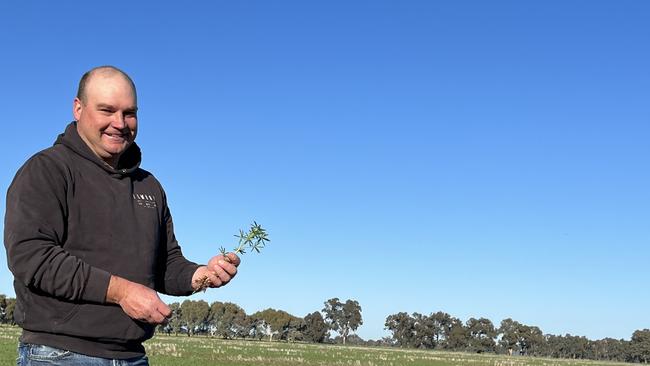Farmers look to manage nitrogen fertiliser price volatility
Nitrogen fertiliser can account for up to 40 per cent of input costs in a cropping operation. See what is being done to help growers manage it.
Farmers say nitrogen fertiliser accounts for up to 40 per cent of their input costs to grow a winter crop.
The challenge for landholders is to level out some of the risk especially after prices skyrocketed to $1100 a tonne in 2021 and have since returned to a more moderate range of $600 to $700/tonne in 2024.
Victorian Farmers Federation grains group president and Berriwillock farmer Craig Henderson said he can store up to two years supply of urea on farm. This is just one way to ensure availability and help to mitigate the fluctuations in price.
“There is a hell of a lot going out now after the rain, and the availability at the moment is okay,” he said.
Mr Henderson said the price was currently fluctuating from $600/tonne to $700/tonne and there was at least a 15 per cent price variance from week to week.
In terms of inputs, Mr Henderson said urea was easily one of the most volatile for both price and availability. He said the price of other chemicals and seed remained relatively stable.
“If you look at it in terms of inputs it accounts for at least 30 per cent, and in some cases up to 40 per cent depending on price,” he said.
To help improve the efficiency of nitrogen inputs the industry is investing $17 million on a new project over four years.
Grains Research and Development Corporation managing director Nigel Hart said the project was aimed at helping growers to manage input costs.
The goal was to provide growers with information to help them understand what technology works best and to investigate current nitrogen application strategies further.
Results from the project will be available to growers in 2028.

NSW Farmers grains committee chairman Justin Everitt of Brocklesby in southern NSW said any opportunities to better manage nitrogen use were certainly welcome and something that was needed.
“Anything that can take some of the volatility out of our financials would be welcome. You have to budget with nitrogen at the higher end, but ultimately, you hope it is lower,” he said.
Mr Everitt said there was a lot of urea going out at the moment because of recent rain.




